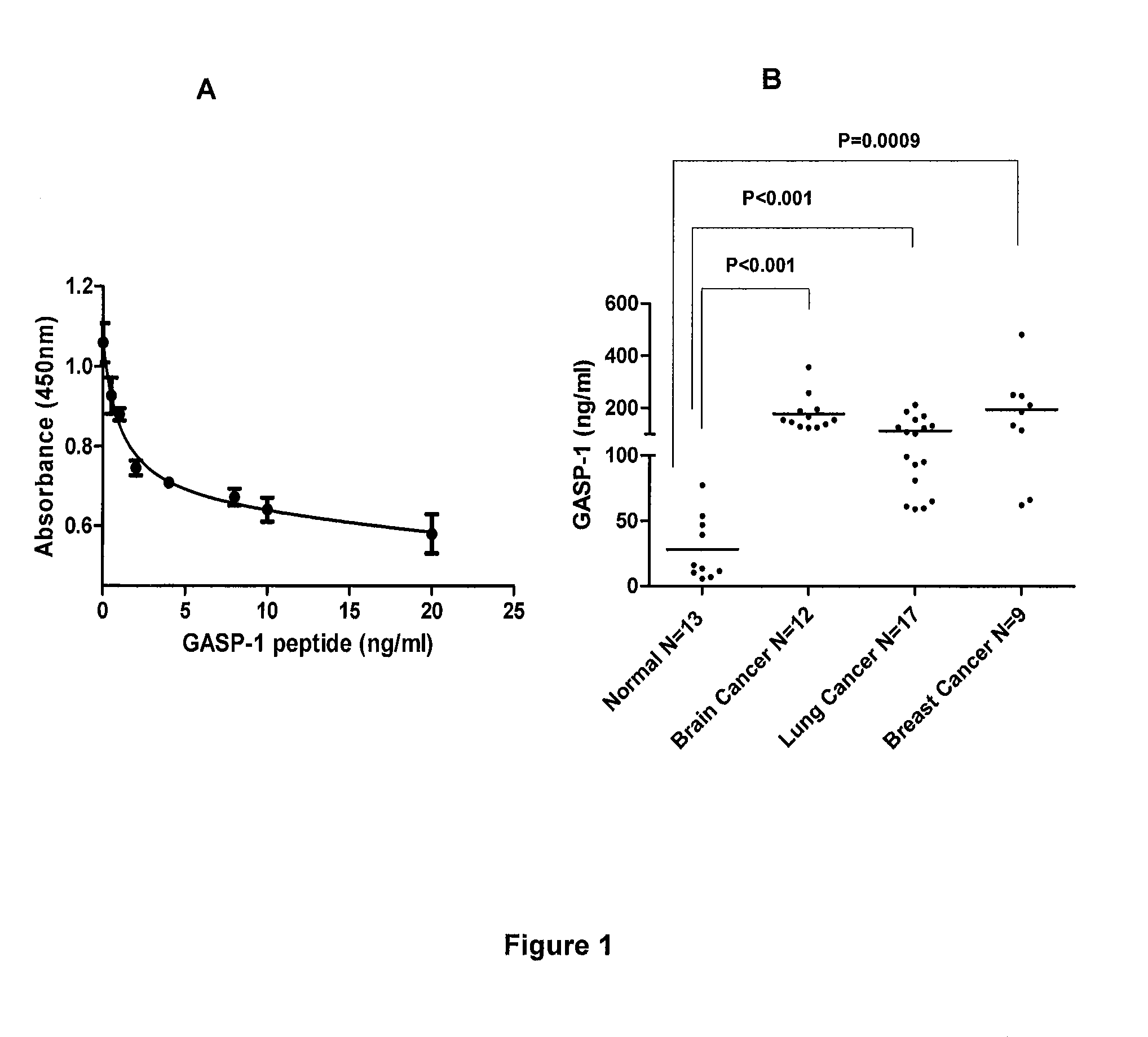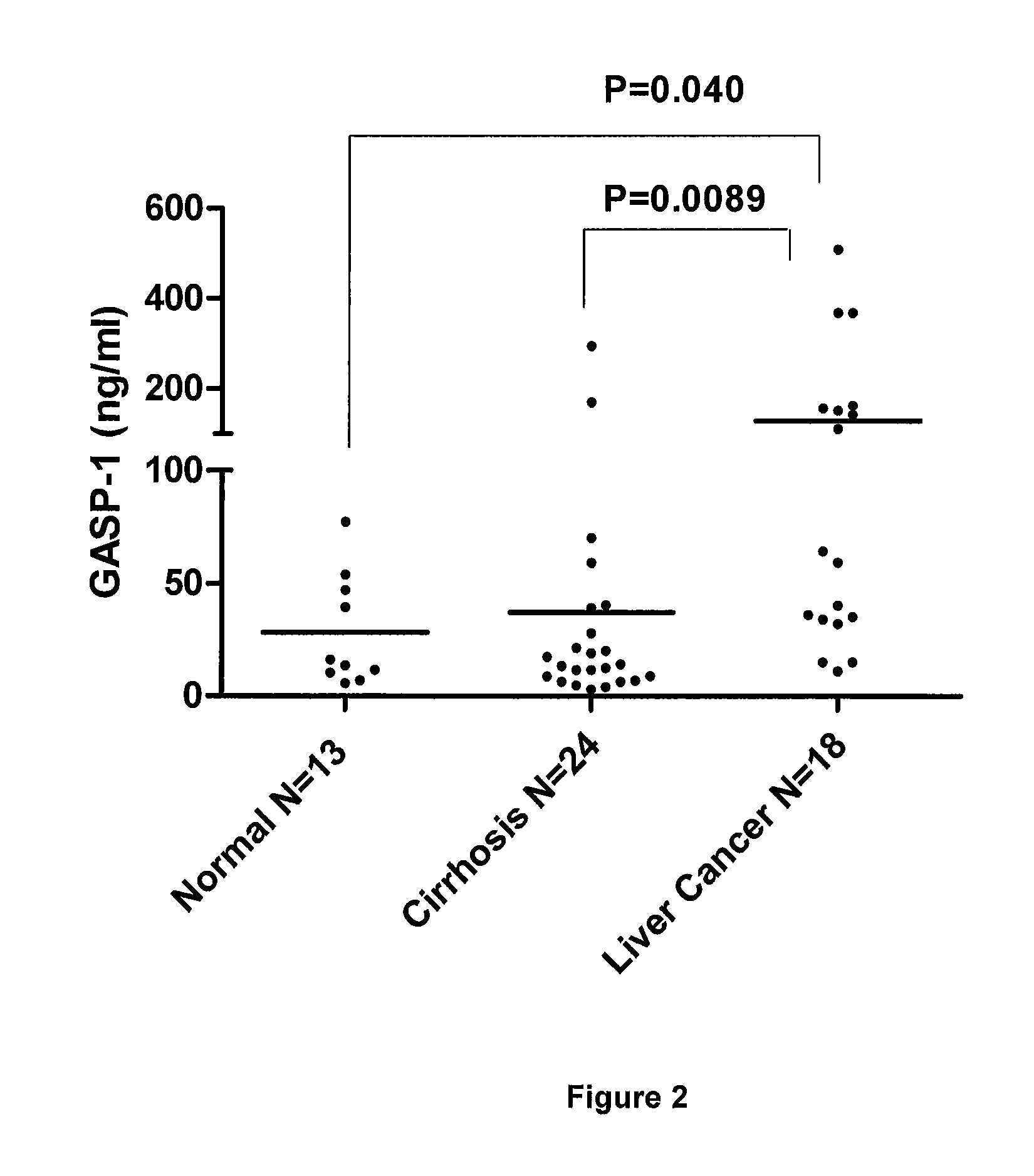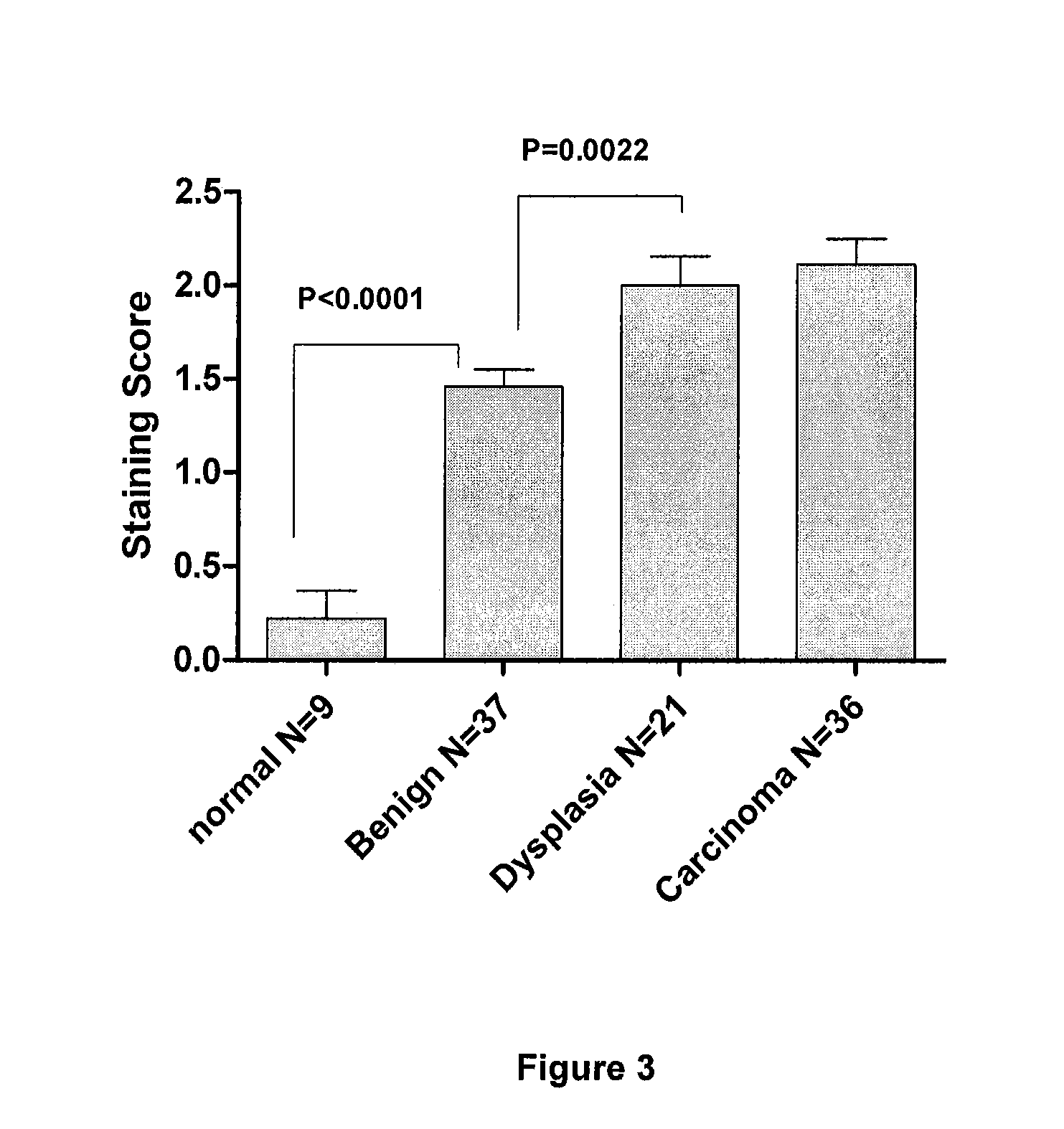G-protein coupled receptor-associated sorting protein 1 as a cancer biomarker
a cancer biomarker and g-protein coupled receptor technology, applied in the field of g-protein coupled receptor-associated sorting protein 1 as a cancer biomarker, can solve the problems of inability to yield useful biomarkers, unable to rapidly identify individual disease-associated proteins, and relatively few patients ever benefit from biomarker-guided therapy
- Summary
- Abstract
- Description
- Claims
- Application Information
AI Technical Summary
Benefits of technology
Problems solved by technology
Method used
Image
Examples
example 1
Identification of Cancer Peptide Motif from GASP-1
[0077]As indicated earlier, serum albumin complexes from Stage I breast cancer were separated using 2-D HPLE. The protein complex spots were subjected to on-membrane digestion with trypsin and the tryptic peptides identified by liquid chromatography with tandem spectrometry sequencing of individual peptides (LC / MS / MS). Protein identities were determined from database searches of virtual tryptic peptide data bases or fragmentation spectra of tryptic peptides. The Wistar Proteomic Facility in Philadelphia has developed a tryptic digest procedure for analyzing proteins and their fragments present in serum albumin complexes on PVDF membrane. Analysis of one of the differentially expressed spots of cancer protein complexes by LC / MS / MS revealed the presence of a peptide fragment having a sequence of EEASPEAVAGVGFESK (SEQ ID NO: 1). This sequence matched 100% with G-protein coupled receptor-associated sorting protein 1 (GASP-1). GASP-1 (Ref...
example 2
Development of “Competitive ELISA” for Quantification of GASP-1 and its Peptide Fragments in Patient Serum
[0078]As indicated earlier, over-expression of GASP-1 in cancer tissues leads to the secretion and accumulation of a specific fragment containing 16-amino acid sequence (EEASPEAVAGVGFESK (SEQ ID NO: 1)) of this protein into the blood. The GASP-1 fragment constitutes only about 1% of the entire protein and its amino acid sequence is unique because no other human proteins contain this particular sequence. It will be highly desirable to detect this or other peptide sequences from the over-expressed GASP-1 protein. A protocol for a “Competitive ELISA” according to the present invention, using a single antibody against GASP-1 peptide fragment, is provided below.
[0079]Experiments were carried out in triplicates. Two strip frames for inserting appropriate number of wells were prepared and name “plate A” and “plate B”. Wells for both standards and samples on plate A were coated overnigh...
example 3
GASP-1 Peptide Levels are Elevated in Sera of Patients with Brain, Lung and Breast Cancer as Compared to Those with No Cancer
[0082]Based on the standard curve, we determined Gasp-1 levels in normal healthy individuals and patients with brain, lung and breast cancers (FIG. 1, panel B). Using our “Competitive ELISA” procedure, we found that sera from patients with brain, lung and lung cancer expressed 10 fold more GASP-1 peptide than sera from normal healthy individuals. It is evident that our ELISA can be used to detect the presence of these cancers.
PUM
| Property | Measurement | Unit |
|---|---|---|
| concentration | aaaaa | aaaaa |
| concentration | aaaaa | aaaaa |
| diameter | aaaaa | aaaaa |
Abstract
Description
Claims
Application Information
 Login to View More
Login to View More - R&D
- Intellectual Property
- Life Sciences
- Materials
- Tech Scout
- Unparalleled Data Quality
- Higher Quality Content
- 60% Fewer Hallucinations
Browse by: Latest US Patents, China's latest patents, Technical Efficacy Thesaurus, Application Domain, Technology Topic, Popular Technical Reports.
© 2025 PatSnap. All rights reserved.Legal|Privacy policy|Modern Slavery Act Transparency Statement|Sitemap|About US| Contact US: help@patsnap.com



